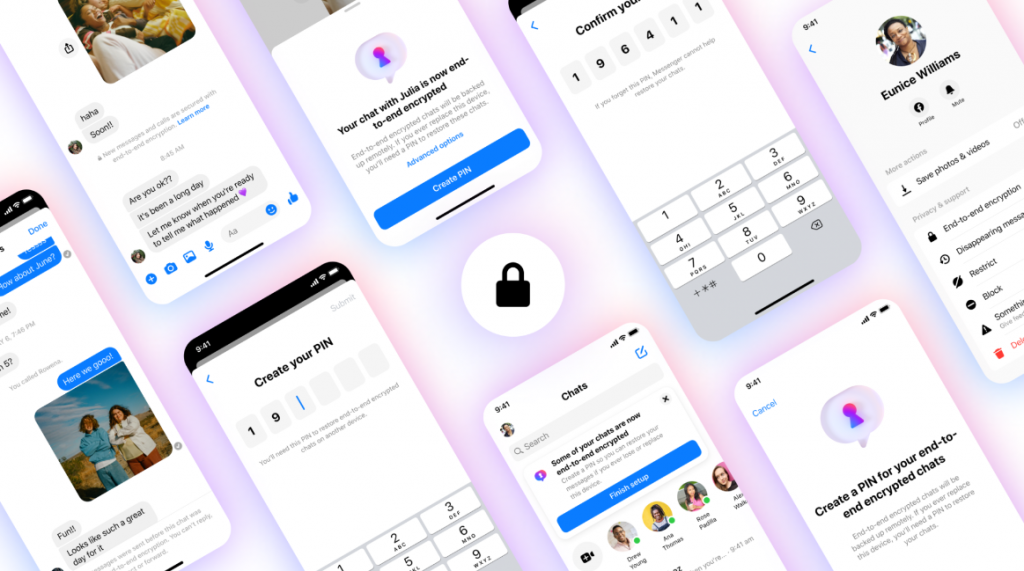
Credit: Meta
Meta is on a campaign to improve the data security of its apps by adding new privacy features. The platforms that are set to receive security upgrades are its instant messaging applications, namely, Messenger, WhatsApp, and Instagram’s direct messaging functionality.
Interestingly, this move coincides with the United States Federal Trade Commission’s recent announcement of possibly creating new regulations for commercial surveillance. It seems that Meta is doing its part by not just complying with the FTC commercial surveillance initiative but also by enhancing its image following the Cambridge Analytica scandal.
For Messenger, the social media giant has started testing end-to-end encryption, slated to become the default setting. It also plans to release secure storage—which serves as a backup and an added layer of protection for encrypted conversations—encrypted phone calls, and a code verification feature to test the effectiveness of encryption. Vanish Mode will be removed but the platform is keeping disappearing messages.
Meanwhile, Meta is also planning to have end-to-end encryption for Instagram’s messaging feature in the near future. It has begun testing with select users from different countries. However, unlike Messenger, the platform is retaining Vanish Mode.
Regarding WhatsApp, Meta is introducing a host of new features that uphold consumer privacy, protection, and control. An upcoming feature will enable users to leave conversations discreetly, with the chat admin as the sole party to be notified. The platform will also allow users to choose the parties they’re visible to when online. Moreover, a feature that lets users selectively block screenshots is in the works as well as two-step verification for authentication.
These upcoming features truly improve data security but may have stumbled across a set of privacy-related concerns, this time touching on law enforcement.
Improved Security as a Privacy Concern?
End-to-end encryption ensures that conversations between users cannot be accessed by other parties, including Meta. This appears ideal for consumers from the get-go as the added security layer dispels fears of Meta peddling information on personal conversations. But, in cases of abuse online, courts and law enforcement won’t gain access to the conversations without the express consent of the parties involved. Photos, videos, and interactions on social media and instant messaging platforms are admissible in court.
Meta found the motivation to seriously pursue end-to-end encryption after Messenger’s features were embroiled in a scandal. The social media outfit faced criticism for not making encryption the default setting for Messenger as the retrieved chat history of a 17-year-old and her mother led to them being charged with abortion. On the other side of the coin, there have been many requests for WhatsApp and other messaging apps to disable end-to-end encryption so that government forces can better pursue criminals.
It’s a slippery slope in Meta’s case but the company is resolute in making end-to-end encryption and other privacy features the standard in communications solutions. After all, the protection of users comes as a top priority in the company’s current campaign.
“We’re working hard to protect your personal messages and calls with end-to-end encryption by default on Messenger and Instagram,” Sara Su, Meta’s Product Management Director for Messenger Trust, said.






















Leave a comment!